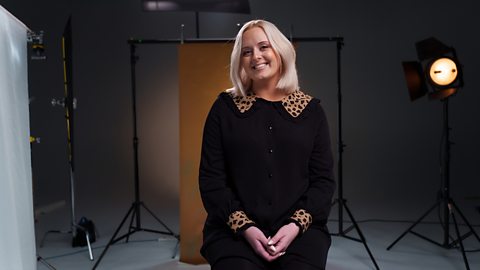[Ishmael] Hi… uh, my name’s Ishmael. I wanted to call because
over the past few weeks I’ve been feeling depressed and lonely
I have very few friends and struggle to talk to people
Even when I try to speak to new people over social media I just get ignored
which makes me feel really lonely.
I want to be able to talk to people who want to talk to me and have relationships which I can treasure and enjoy.
I feel stuck and have no idea how to improve my mood.
[Roman] Feeling isolated and lonely doesn’t always mean that you don’t have anyone around you.
You can be surrounded by people and still feel alone.
Now, I’ve been living with depression since I was around 15 years old.
I remember just feeling so down and isolated like I had this dark cloud kind of constantly over my head
and I would wake up and everyday felt like a bad day
It felt like someone had told me some terrible news when they hadn’t.
It felt like I would go ten rounds of Mike Tyson in a boxing ring
And he’s just absolutely battering me and I’ve never learnt how to box before
I don’t have a clue on how to fight back
I got to a point where I became so kind of, withdrawn,
And was spending more time being in a negative headspace
and I didn’t want to see my friends and having mood swings
And I got quite lucky - my mum noticed and booked me an appointment to the doctors
You know, and people often feel embarrassed about admitting how they feel
You know, I did, but the reality is you shouldn’t, you know?
So many young people like you have contacted services for support for your mental health
You know, acknowledging how I was feeling was the first step to helping to feel better and getting the help that I needed.
And that’s the thing, the more we talk about those things, the more we share,
the less we feel alone in dealing with our depression.
I definitely hit a seriously low point a couple of years ago where I started
Questioning my job, if I was good enough, how I looked, if I was a good boyfriend, everything,
and I just completely broke down.
I got super lucky that day that my mum made one phone call and it was straight to me
and I just blurted it all out to her and she just helped me through it
And that’s the thing - when we start to talk about our mental health
We realise that our friends and the people around us, might also be experiencing mental health issues
I know it’s not as easy just to start opening up when you’re in that headspace
And that’s why I think it’s so important that us also, as friends, as siblings, as classmates,
Check in on our mates and ask them ‘are you okay?’ you know, and ask it twice
‘Are you really okay?’
Because the thing is you can feel isolated, lonely or depressed for loads of reasons
there are loads of steps and exercises you can try to help you deal with your depression
And I know our expert Alex is going to share some of those with you as well
[Alex] It is important to remember that although you might feel like the only person
experiencing feelings of isolation, loneliness and depression, you aren’t alone.
Lots of young people experience these feelings for many reasons.
It might be that you find it hard to make friends like Ishmael.
You might be going through some changes such as moving schools or to a new area.
Or have recently experienced the end of a relationship
Whatever your circumstances there are steps you can take to try to reduce the feelings of loneliness
and isolation you might be feeling.
It can be hard to push yourself to try new things but getting creative can really help to express how you are feeling.
Poetry or drawing can be a great way to do this.
Focusing on the positive things about yourself can really help build your self confidence and self-esteem
Try to find one thing that you like about yourself
Could be your hair, your sense of humour, your excellent taste in music, or your football skills
Once you’ve made that start, you can begin to think of more things
And create a positive image of yourself
Having shared interests is a great way of connecting with new people
Whatever you’re into, there are bound to be others who share the same interests
Why not start a hobby that you’ve always wanted to try?
Finding something you really enjoy can be a great way to feel happier and less alone
If you’re feeling low, it’s important that you speak someone you trust about how you feel
Once you start talking, it can feel like a weight has been lifted
And mean that you get the support that you need
[Roman] And it’s just so important to remember that you’re not alone in experiencing
the feelings and emotions that you might be going through right now.
You know, why not try some of the steps our expert, Alex has suggested?
You know that I know when I feel particularly low
I find going out, listening to music, doing some exercise
Can really just help shift that low mood, you know? A little bit of coping exercises
And also, check in on one another. Reach out, ask how someone else is doing
Take it away from yourself - they might be experiencing what you’re going through as well
And you can bond through that.
You should always tell someone about the things you’re worried about.
And always know that you can tell a friend, a parent, guardian, teacher, another trusted adult, anyone
There’s also lots of links to helpful organisations on the BBC action line website
This film starts with Ishmael’s story. Ishmael is played by an actor and his story is a reconstruction based on a real call to Childline. Ishmael describes feeling isolated and feeling unable to communicate with friends. He describes how isolated this makes him feel as he has no one to talk to and share hobbies with.
The film then focuses on DJ and television personality Roman Kemp who talks about his own experiences of depression and isolation. Roman started experiencing depression as a teenager and found support through counselling after his mum noticed he wasn’t himself.
Alex, the expert from Childline, emphasises how important it is to talk to a parent, teacher, trusted adult or friend if you feel depressed. Remember that everyone feels sad and down sometimes, but we usually start feeling better after a day or two. Someone experiencing depression may have feelings of low mood over a longer period of time and will struggle with feelings of hopelessness. Key steps that Alex suggests trying include:
- Try new things
- Focus on the positive things about yourself
- Start a hobby
- Speak to someone you trust
The reconstructions are based on real calls from Childline service users, but are not necessarily direct quotes. All names and potentially identifying details have been changed to protect the identity of the child or young person involved.
Before watching the film
Set up a working agreement or set of group rules before watching the film. Make it clear that there is no pressure on students to share any personal experiences. They can talk about the characters in the phone call reconstructions and the contributors’ experiences instead. Remind students that the classroom is be a safe space to discuss and share thoughts if they wish to, and that they should be aware of and respect others’ opinions and experiences. Remind them also that you cannot guarantee absolute confidentiality but will talk to individuals if you have any concerns. The agreement should include how and where to access support if needed.
People of different genders, backgrounds and cultures may approach their mental health in different ways. Talk about the pressures on young people and whether gender makes a difference. Be sensitive that young people from some cultural backgrounds may not find it easy to talk about mental health and remind them they don’t have to talk about themselves. Use the distancing technique to ensure that the students feel safe and comfortable talking about the issues in the films. Talk about what the contributors say or talk about ‘someone who.’
Open up a general discussion about mental health and as a group come up with words they associate with the topic of the film. Remind the students that if they need any support at any point they can ask, either during or after the lesson.
After watching the film
- How might you begin a conversation with a friend or family member you’re worried may be experiencing depression?
- How might you start that conversation if you were the one who needed help?
- Compile some conversation starters that might help get the ball rolling. If it was you who needed help you might say something like, ‘Can I talk to you for a sec?’ or ‘I’m finding things hard at the moment.’ If you are worried about a friend you might come up with some conversation openers like, ‘Are you ok?’ or ‘You don’t seem yourself lately. How’s it going?’
- Make a list of people you could talk to at school and at home. Include a family member, a friend and an expert such as a counsellor or GP. How might you open a conversation with them?
Remind the students that they don’t have to solve or fix their friend’s problems. Just being a sympathetic listener is really important. If they think their friend needs some extra support they can offer to go with them to talk to a teacher, doctor or counsellor and be there as moral support.
As a group, talk about ways that everyone can support each other with their mental health. You may even want to create a class charter around more positive mental health or encourage each student to make a list of three practical things they can do to support their own positive mental health.
Make sure that students are supported in their own mental health and wellbeing by signposting support that is available in school, locally and nationally. Remind them that they can always speak to their GP or local services.
Remind students that if they or someone they know has suicidal thoughts then it is important to get help immediately. This is not something they should have to deal with alone.
More resources in this collection
Time to talk about... anxiety with Tom Grennan. video
Tom Grennan discusses his own experiences with anxiety, alongside real-life testimony and expert advice.

Time to talk about... self-esteem with Zara McDermott. video
Zara Mcdermott discusses her own experiences with self-esteem and self-confidence issues, alongside real-life testimony and expert advice.

Time to talk about... mental wellbeing with Wes Nelson. video
Wes Nelson discusses his own experiences with mental wellbeing issues, alongside real-life testimony and expert advice.

Time to talk about... stress with Katie Thistleton. video
Katie Thistleton discusses her own experiences of stress, alongside real-life testimony and expert advice.
